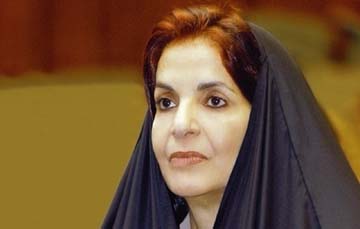ID :
490351
Sun, 04/29/2018 - 01:55
Auther :
Shortlink :
https://www.oananews.org//node/490351
The shortlink copeid
HRH Princess Sabeeka award jury includes UN, legal, diplomatic figures

Manama, Apr. 28(BNA): The international jury of the Princess Sabeeka bint Ibrahim Al Khalifa Global Award for Women Empowerment is headed by Phumzile Mlambo-Ngcuka, the United Nations Undersecretary-General and Executive Director of UN Women who has worked in government and civil society, and with the private sector.
From 2005 to 2008, she served as Deputy President of South Africa, overseeing programmes to combat poverty and bring the advantages of a growing economy to the poor, with a particular focus on women.
Outstanding names in the United Nations work are included in the jury in line with the importance of the global award and who meet the expectations and anticipations associated with the award.
The jury includes Helen Elizabeth Clark, the politician who served as the Prime Minister of New Zealand from 1999 to 2008, and was the Administrator of the United Nations Development Programme from 2009 to 2017. She was also the Chair of the United Nations Development Group, a committee consisting of the heads of all UN funds, programmes and departments working on development issues.
Prominent legal figures in the jury include Shaikha Haya bint Rashid Al Khalifa who was President of the 61th United Nations General Assembly in 2006-2007. She was the third woman in the world and the first Arab woman to hold the position. Shaikha Haya has received the United Nations Millennium Development Goals Special Award in 2007, the Path to Peace Award in 2007 and the Social Creativity Award at the Sixth Conference of the Arab Thought Foundation.
Another outstanding legal personality is Marike Paulsson, the director of the International Arbitration Institute at the University of Miami and Lecturer in Law. She is also the vice president for North America of the Global Legal Institute for Peace and Conflict Resolution Centre of the University of Sao Paolo and has recently been appointed Vice-President for North America of the Mauritius Arbitration & Mediation Centre.
Professor Paulsson has many years of practice and academic experience in public international law, international arbitration and cross-border litigation. She has acted as counsel, expert witness and arbitral secretary in numerous international arbitration matters.
A prominent diplomatic member of the jury is Antonio de Aguiar Patriota, the current Ambassador of Brazil to Italy and former Minister of External Relations. He was Ambassador of Brazil to the Permanent Mission of Brazil to the United Nations in New York (2013-2017). He was the Chair of the Commission on the Status of Women Bureau for the 61st session (2017).
Professor Mustafa Al Faqi is the director of Bibliotheca Alexandrina. He is a prominent politician with a rich knowledge of history, politics and international relations. His posts include being the Assistant Foreign Minister for Arab and Middle East Affairs, Permanent Representative of Egypt to the League of Arab States (1999).
Another member is Mohammed Naciri, the regional director for the Arab States for the United Nations Entity for Gender Equality and the Empowerment of Women (UN Women). Prior to his current appointment, he served as Deputy Regional Director, Arab States, UN Women.
The jury will soon start scrutinising the applications for the award ahead of announcing the laureates who will be honoured at a high-level ceremony.
The Princess Sabeeka bint Ibrahim Al Khalifa Global Award for Women Empowerment aims to demonstrate the importance of the commitment by states, entities and organizations through their legislative, executive, public and private agencies and civil society to the policy of non-discrimination against women and to equal opportunities for women and men at all levels.
The award also seeks to highlight the efforts, initiatives and institutional and individual projects aimed at integrating the needs of women in order to contribute to positive change in their reality towards a more stable and productive life.
General criteria have been adopted to qualify for the award, most notably creating scientific methodologies and policies to bridge gaps in favour of women in various sectors and sustaining their application.
Another criterion is contribution to the provision of choices and quality services for different age groups of women and to support policies and methodologies for women's empowerment, equal opportunities and gender balance.
This criterion is promoting women's participation, including their attitudes and studying their needs at all stages of planning, implementation and evaluation, empowering women to take leadership positions, and sustaining their presence in decision-making positions.
The global launch of the award highlights the achievements that reflect the elevation of the status of women at the national level. Her Royal Highness Princess Sabeeka, the President of the Supreme Council for Women, is keen to support the best effective practices to promote the status of women at the national and international levels and to pursue the goals of sustainable development with regard to achieving gender balance.
The launch of the award at the international level coincides with the tenth anniversary of its launch in Bahrain and the success of its dedication as a standard for women's empowerment and support in public and private institutions.





